From Doctor Who to Dune: series that deserve great games
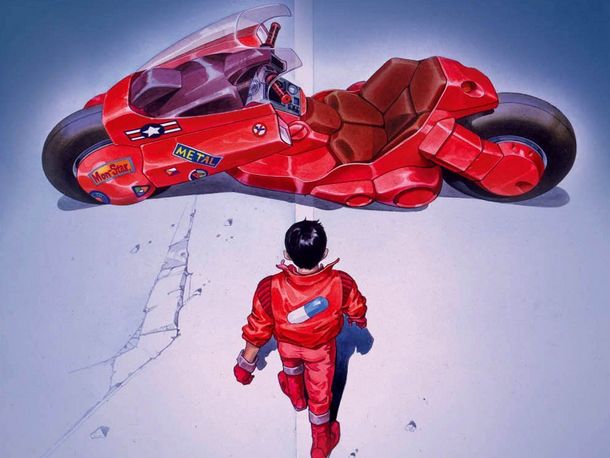
A great film or book won't necessarily spawn a great game, and the gaming history is full of quickly produced tie-in cash grabs. But when a game gets its source material right, it's a joy. It makes the original better, adding secret chapters to the book you loved, or extending the streets of the meticulously crafted set you've pored over during various repeat watchings.
When the credits roll on Blade Runner I want more of those streets. I want more stories from that world. I want something that will deepen my relationship with the film and indulge my obsession. Lots of series deserve that treatment. Welcome to the what-if zone. Here are a few series that deserve a great videogame. There are many, many more than I've listed here, so we'll probably come back and add extras later.
Got any ideas for games you'd love to see made? Got a pitch for an amazing Godfather game? Any thoughts about how, say, Back To The Future could work in an interactive medium? Let us know in the comments.
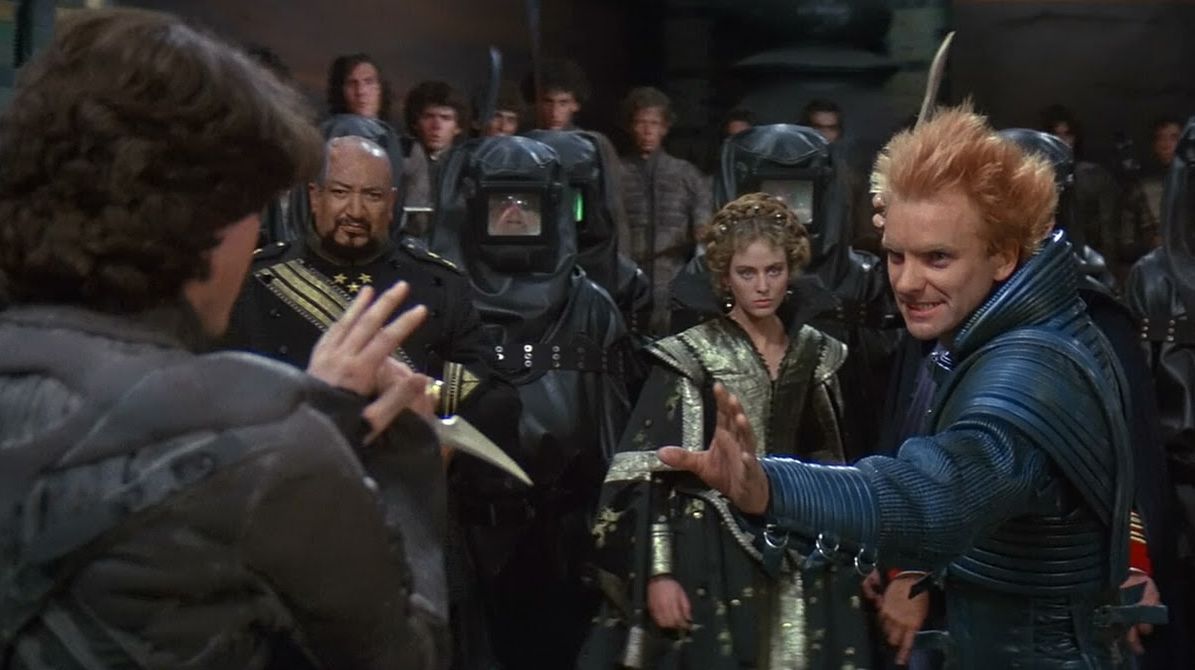
Dune
The adventure game was great and the RTS set a template for a whole genre, but there are more adventures to be had on Arrakis. We can do open worlds now, and sand, and big monsters. It's dangerous to take on one of the most loved books in the science fiction canon, but the rewards are great. There are interesting politics, well-defined factions, cool weapons (sonic blasters; wormtooth daggers, the wierding way) and interesting machines like Ornithopters and the infamous pain-box. Also: Mentats! There's a game in there somewhere. There must be.
The pitch: With ruthlessness worthy of a Sardaukar terror squad, pillage from the corpse of Jodorowski's Dune. Leave no scrap of Giger's concept art behind and build an explorable sci-fi world unlike any other. Tame sand worms in moments reminiscent of Shadow of the Colossus, lead Fremen against Harkonnen spice operations and hold the empire hostage. Fistbump a Mentat.

Blade Runner
There was a neat Westwood adventure game that lifted environments directly from the film, but nothing else has come close to putting us on the streets of that overpacked city. Current technology may finally be capable of rendering environments of the required density to effectively realise that place. Last year Alien’s corridors were recreated digitally with remarkable authenticity. Imagine if the same diligence was applied to Blade Runner's megacity, and you could plod its streets as a world-weary gumshoe yanked out of retirement for one final job.
The pitch: Live the life of a Blade Runner, driving to crime scenes in your flying car; take pictures, zoom, enhance; right-click to sip whisky; get punched in the face; apply Voigt Kampff test; meet a mechanical owl; absorb procedurally generated villain monologues; watch a slow motion dove take flight while mournful synth blues plays. Rutger Hauer.

The Culture Series, by Ian M. Banks
Image: Consider Phlebas cover art from the artist's site at Salwowski.com.
In a post-scarcity far future setting, humans enjoy a hedonistic existence under the administrative guidance of vastly powerful AI ‘Minds’. With no explicit law and no shortage of food, drink and drugs, human behaviour is defined by fluctuating social convention and endless partying.
There are still power struggles, however, worsened by horrible futuristic weaponry and technology that can read and manipulate minds. Severe existential threats to humanity’s population hubs are eliminated by terrifying “Special Circumstances” drones armed with manipulable force fields and knife missiles. It’s an extraordinary universe, full of humour, violence and big ideas about what our species would do with near-limitless resources.
The pitch: Consider Phlebas—the first Culture book—is a great place to start. The pirate-raiding premise lets the player tour the universe, and the hunt for a lost Culture Mind is a great hook, particularly when it leads to the dead planets of fallen civilisations past.
It would be wrong to talk about Ian M Banks in a videogames context without also mentioning The Player of Games, in which the Culture recruit an expert player battle for influence in an Azad tournament. Azad’s rules are never defined, but it’s the ultimate game—complex and free-form in a manner that allows players to compete on philosophical grounds. So yes, if someone could just design the ultimate game based on Azad, that’d be fine too I suppose.
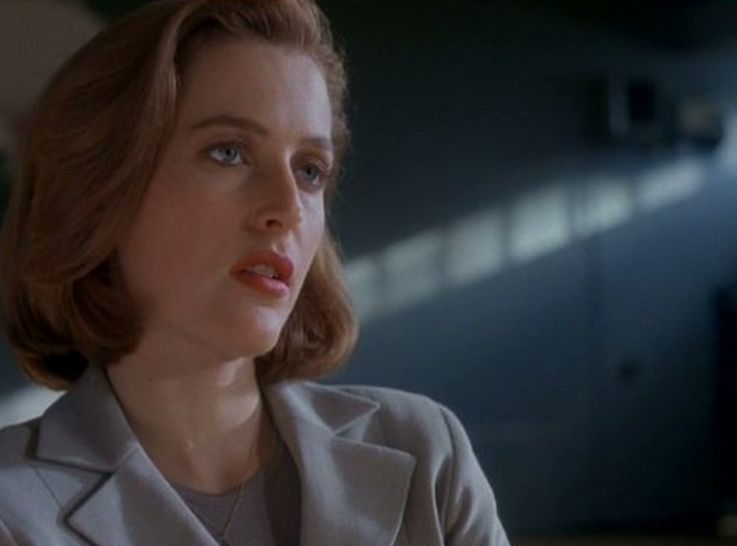
The X-Files
How has there never been a good X-Files game? Because detective games are difficult, is the answer. But we can’t let that stop us from wishing really hard. Think of it—the dodgy ‘90s lighting, the big suits, smoking conspirators, small town America. The X-Files did great monster-of-the-week episodes that constantly transported Mulder and Scully’s bubbling sexual tension to fresh locations. And the monsters were fantastic—menacing and weird, but with a human dimension. Sometimes they could communicate themselves, but often they’re connected to human enablers, pursuing petty jealousies with supernatural conviction.
The pitch: Imagine sitting in an interview room interrogating Eugene Victor Tooms. Evidence-based investigation and forensic analysis are just convenient plot-movers in the show, the act of piecing together clues needn’t be what the game is entirely about. A Telltale-style game where you play as Mulder and Scully, interrogating witnesses and talking your way through cases could still work. Mulder can press X to monologue, and while playing as Scully, a “shut up Mulder” conversation option is permanently available. Don’t do it too often, though. Mulder will remember that.
Alternatively, an Angry Birds minigame that has you flicking sunflower seeds into Mulder’s yawning mouth.
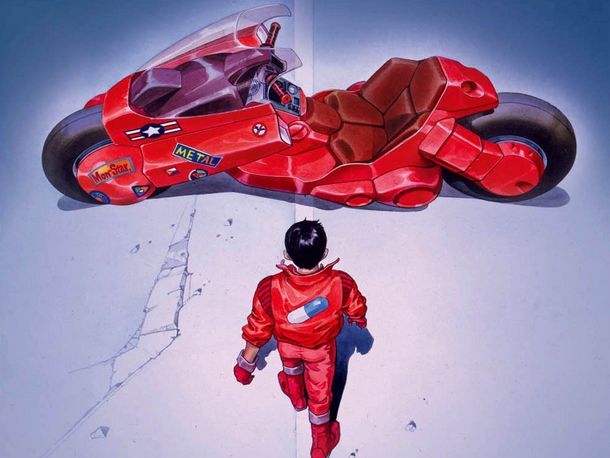
Akira
Words like “seminal”, “epic” and “transcendental” are overused in discussions about Akira, a seminal transcendental modern epic about about psychic kids and the end of the world. The film skips roughly three of the manga’s six volumes, but captures the finale’s scenes of body horror and mass-destruction all too well. The manga uses the extra volumes to picture life in the aftermath of what seems to ordinary citizens to be a horrendous and unknowable act of god. It’s a grim and difficult piece of work, and it’d be a mistake to try to realise the totality of Akira in an interactive experience. Having said that, there’s plenty of room for a smaller game set in the rubble surrounding the main events of Akira’s story.
The pitch: manage a biker gang in Neo-Tokyo. Run raids and fend off rival gangs from the cockpit of one of Akira’s famous motorcycles. Keep your friends alive as the city is destroyed, scraping out a living in the underworld as superbeings take out their grievances on Japan’s biggest city.
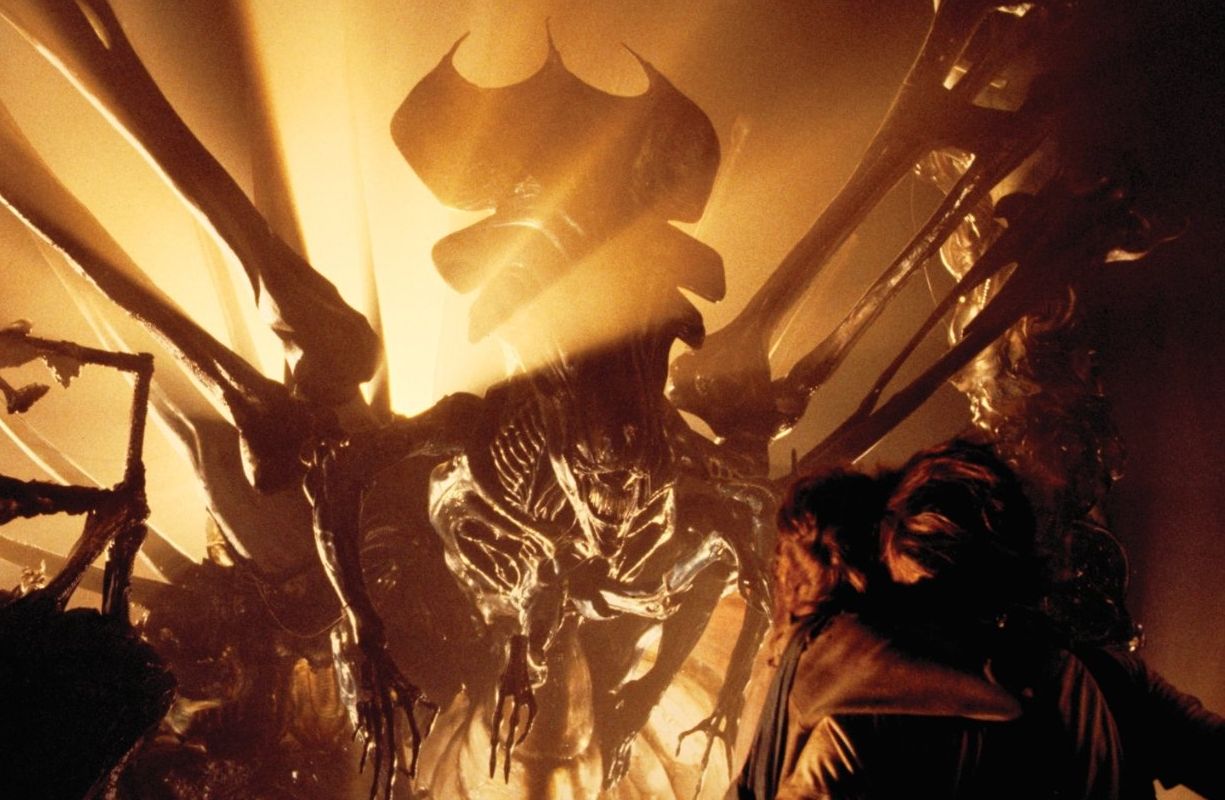
Aliens
Videogames have been trying to do Aliens forever, but we still don’t have the definitive Aliens game (Colonial Marines was the last attempt and we all know how well that went). When adapting beloved series, the trick is to find a way to deliver the key beats without telling same story with the same characters. The “oh hey it’s Hicks” moment isn’t worth the following twelve hours you’ll spend knowing exactly how Hicks’ story pans out. So what aspects of Aliens should players care about? It’s easy. Attrition, cool guns and horrifying enemies that attack in swarms—mostly at night.
The Pitch: A squad shooter in which you lead a team of marines into a fully explorable colony. Set up bases wherever you can as you push into the facility, welding doors and setting up turrets to protect your team and your equipment. Between Xenomorph assaults you must push onward to discover the origin of the outbreak and eliminate the Queen. This will involve lots of exciting shooting. Someone is permitted to shout “they’re coming out of the walls”, but only once. These things must be rationed.
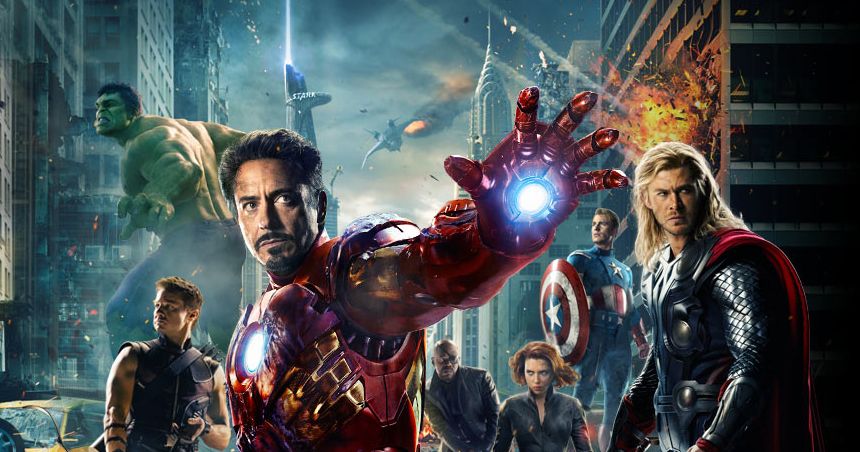
The Marvel Universe
The Marvel universe is doing alright. Their unstoppable movie juggernaut has done such a good job of owning the summer blockbuster season that I’m surprised we haven’t yet seen a movie about Juggernaut. So why not a game about Juggernaut? Because he’s rubbish. Also because of Marvel’s ongoing armwrestle with Sony over the rights to major characters like Spider-Man and the X-Men. That needn’t stop Marvel from capitalising on the goodwill surrounding The Avengers, though. The team are entertaining enough as Lego Marvel Superheroes, but there’s a much more exciting Avengers game hiding out there in possibility-space, situated somewhere between universes 616 and 617.
The pitch: This one stopped the PC Gamer office for a while some time ago when we started thinking about an Avengers game in the Mass Effect template. Hang out in Avengers mansion talking to heroes between missions, replace the council with Nick Fury (you can hang up on him if you like, but it’s really not advisable), enjoy excellent mid-fight banter and get into stand-offs with villains. When talking to bad guys, right-click to Hulk interrupt.

Doctor Who
How do you build game systems around a man who can go anywhere and enywhen in a magical blue box, and resolve any situation with a magic wand that fits in his pocket? How do you control a character who’s only interesting because he’s enigmatic and unpredictable? How do you fly a TARDIS when the whole point of the TARDIS is that it surpasses our flawed assumptions about how time and space work. It’s a stupid idea. Impossible! Who put this on the list.
That impossible premise makes Doctor Who a juicy prospect though. Apart from Assassin's Creed, there aren't many games that hop through time, and a game that could have acts that fly between wildly different settings—from medieval court intrigue to space dragons—would be exciting indeed. There's even a respawning mechanic built into the Doctor's regeneration habit, but in truth the man himself should probably remain distant, and therefore unplayable.
The pitch: You can’t be the Doctor, and his companions never do anything interesting, so we’re left with… (scrapes bottom of barrel) a Dalek dating sim. OK Stupid: Putting The Mate in Extermimate. Jeez. Okay, let's go back to the companion. You may not have the Doctor's big brain and amazing gadgets, but he's a needy old soul. You must accompany him on his adventures, focusing his manic scattershot attention and ushering him in the right direction. It's a nanny sim, and you've been given a big angry powerful baby.
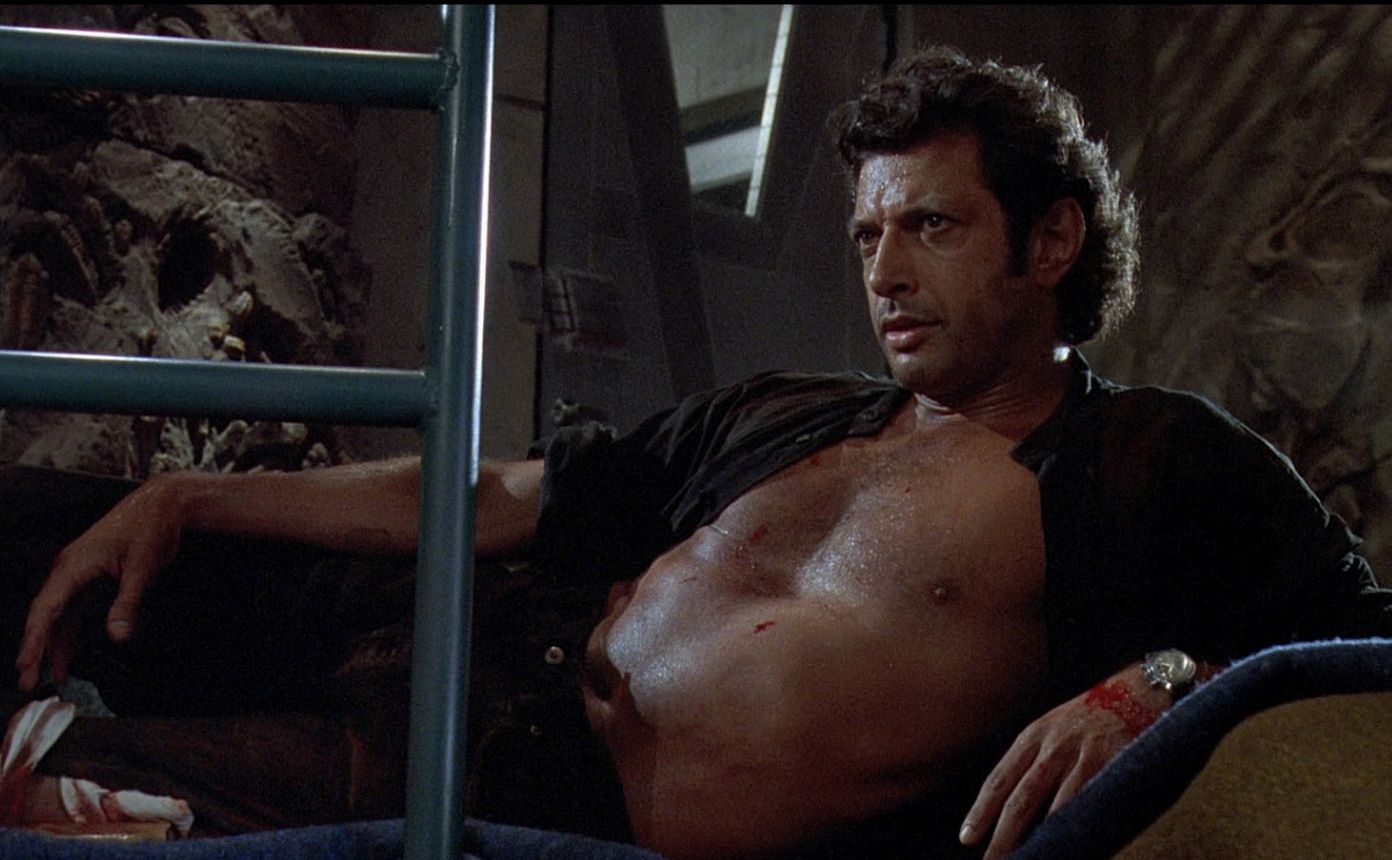
Jurassic Park
I don’t know how we’re still in this position, but there are no good games about dinosaurs. What do you mean “Turok”? Don’t talk to me about Turok. Trespasser? It’s funny, but not good. Dino Crisis? No. No. No. It’s 2015 and there are no good games about dinosaurs and that means we’ve gone wrong. We let ourselves down. We let Jeff Goldblum down. Dinosaurs—actual real-life videogame villains that lived on our planet—have never had a proper game.
Jurassic Park seems like the best fiction to use for a good dinosaur game. It’s got decent dinosaurs and they’ve got videogamey rules, like the T-Rex that can’t see things if you don’t move (some of the rules are stupid), and Raptors that hunt in packs. The characters have videogamey objectives, too, like resetting breakers to turn electric fences on, and stealth sections in kitchens, and a quicktime bit where you have to get to the top of an electric fence before it activates. Maybe Jurassic Park was a videogame they put into theatres by accident. It’s time to correct that error.
The pitch: You’re stranded in the park and everything’s going wrong. The fences are failing and you have to reach safety without being eaten. Each paddock has a different species with behaviour profiles to exploit. You have a radio and Jeff Goldblum is on the other end talking to you about chaos theory and other rubbish but when you reach civilisation you discover that the radio was broken all along. A pterodactyl flies into the sunset and you the sun is Goldblum’s smiling face. “You finally found a way son” he says and the theme music over panning shots of your stupid, joyful, crying babyface. Far away, a brachiosaur moos in approval. Sam Neill is not there.
What series would you like to see games for, and what would they be like?
Part of the UK team, Tom was with PC Gamer at the very beginning of the website's launch—first as a news writer, and then as online editor until his departure in 2020. His specialties are strategy games, action RPGs, hack ‘n slash games, digital card games… basically anything that he can fit on a hard drive. His final boss form is Deckard Cain.
Keep up to date with the most important stories and the best deals, as picked by the PC Gamer team.
You are now subscribed
Your newsletter sign-up was successful
Want to add more newsletters?

Every Friday
GamesRadar+
Your weekly update on everything you could ever want to know about the games you already love, games we know you're going to love in the near future, and tales from the communities that surround them.

Every Thursday
GTA 6 O'clock
Our special GTA 6 newsletter, with breaking news, insider info, and rumor analysis from the award-winning GTA 6 O'clock experts.

Every Friday
Knowledge
From the creators of Edge: A weekly videogame industry newsletter with analysis from expert writers, guidance from professionals, and insight into what's on the horizon.

Every Thursday
The Setup
Hardware nerds unite, sign up to our free tech newsletter for a weekly digest of the hottest new tech, the latest gadgets on the test bench, and much more.

Every Wednesday
Switch 2 Spotlight
Sign up to our new Switch 2 newsletter, where we bring you the latest talking points on Nintendo's new console each week, bring you up to date on the news, and recommend what games to play.

Every Saturday
The Watchlist
Subscribe for a weekly digest of the movie and TV news that matters, direct to your inbox. From first-look trailers, interviews, reviews and explainers, we've got you covered.

Once a month
SFX
Get sneak previews, exclusive competitions and details of special events each month!


